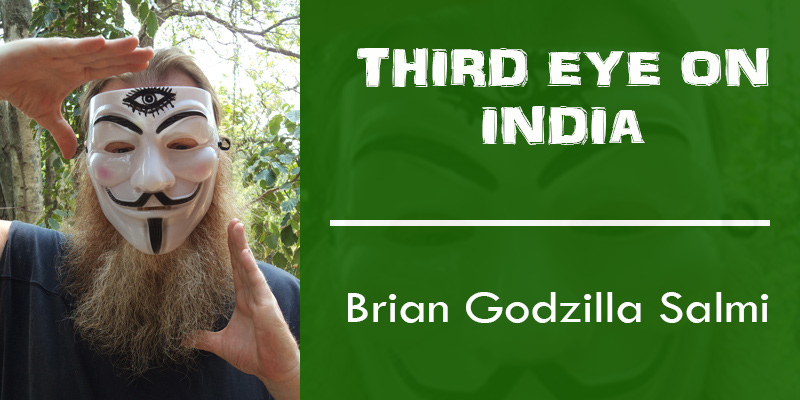A mere 78 years after his death, Rabindranath Tagore is almost irrelevant in the university he founded, and the town it is situated in.

Well, that should incite a cacophonous chorus of indignant howling across India, especially from Bengalis, to which I say, “Don’t shoot the messenger.”

Once lauded as some sort of Oriental oracle in faculty clubs and conversation salons from London to Melbourne, Tagore is largely unknown in The West today. On May 7, 2011, the 150th anniversary of Tagore’s birth, The Guardian’s Ian Jack reported:
“I consulted two dictionaries of quotations, the Oxford and Penguin, to check the most memorable lines of this poet, novelist, essayist, song and short story writer. Not a single entry. They skipped from Tacitus to Hippolyte Taine as if there was nothing in Tagore’s collected works (28 thick books, even with his 2,500 songs published separately) that ever had stuck in anyone’s mind, or was so pithily expressed that it deserved to; as if what had come out of Tagore’s pen was a kind of oriental ectoplasm, floating high above our materialist western heads, and ungraspable.”
The Bengali polymath is second only to Gandhi in 20th century India’s dominance hierarchy. In fact, Tagore is much more important than Gandhi when it comes to cultural legacies.

Call Tagore a guru, if you will, he won’t take umbrage (he is dead, after all). In his lifetime Tagore was revered almost as a God in India. He was the first non-European to win the Nobel Prize for Literature (1913, poetry collection titled Gitanjali). He was a prolific painter, musician and writer. Back in the day Tagore was labeled the Bard on Bengal. He penned thousands of poems, songs, novels, dance-dramas and essays, making him a central figure in the Bengali Renaissance.
Prior to 1921 Tagore invited one and all to come and learn as his ashram in Santiniketan, West Bengal. In 1921, he turned the informal education centre into an institution known as Visva Bharati College. In 1951, ten years after Tagore’s death, Visva Bharati was turned over to the central government, and rebranded a university.

And that, according to Tagore acolytes I have spoken with, was the beginning of the end of the master’s dram to make Visva Bharati the place from which Inidia communes with the world. The end, they say, is nigh.
Today, in Santiniketan, Tagore’s acolytes are known as ashramites. The ashramites collectively lament that Tagore’s teachings are understood by precious few in Santiniketan, and even fewer at Visva Bharati. The ashramites go one step further by stating that the institution’s professors don’t give a flying fuck about what Tagore thought. To Tagore’s devotees, many of those on the Visva Bharati payroll are infidels.
The infidels refute the allegations that they are oblivious to Tagore’s teachings. They say that it’s incredibly difficult, nigh on impossible, to harmonize Tagorean ideals with 21st century realities. Furthermore, they fire back at the ashramites by opining that they are little more than self righteous hypocrites, because they do not practice what they preach.

The infidels say that the ashramites confine their Tagorism to ritualistic bleatings of his most famous poems and songs, while doing sweet fuck all about the perceived affrontery to the sage’s values.
But there is some common ground between the camps. They both believe that Tagore would weep if he could see what has become of Visva Bharati. And, ominously, they fear that there will, one day soon, be open hostility to Tagore’s philosophy, and those who preach it.
I’m not gonna get into all that jazz. I am neither an infidel, not a self righteous hypocrite. I know next to nothing about Tagore’s teachings, and doubt I will ever do more than skim the surface of them. And I’ll be fucked forty-five ways to Finland if I’m gonna risk incurring the wrath of bellicose barbarians who love nothing more than busting heads. I proudly confess to being a fool, but not the kind of fool who starts running his mouth when he don’t know shit about a subject.
I will happily step aside and let those who want to get into a pissing match over what is going on in, “The Abode of Peace,” battle it out in the comments section, like a pack of bitches in heat fighting over a stiff, pink dog dick.
Being a kinda-Canadian, and a pacifist, I request that y’all keep your sticks on the ice, but will not be surprised if it goes all Gordie Howe

and Mark Messier

down in that mosh pit of malicious minds.
I will, however, tell you how there is an absolutely unique business opportunity to be exploited in this schmozzle. No doubt, I will be maligned, by the infidels and hypocrites alike, for having the audacity to tell them how to solve their problems. I am an oulander, after all. Interlopers can be tolerated, warmly welcomed, even, so long as they don’t start meddling in matters that are, in the final analysis, none of their damn beeswax.

But, I know all to well the frustration George Bernard Shaw felt when he said, “There are those that look at things the way they are, and ask why? I dream of things that never were, and ask why not” Therefore, I am prone to dispensing unsolicited advice, at least until I get a cease and desist order in the form of a deranged lunatic opening up my door with an ax, and wanting very badly to do the same to my cranium.

Alas, for you, intrigued readers, you’ll have to come back for part 2 of this cursory investigation into the Trouble in Tagoretown for that astounding display of entrepreneurial clairvoyance.


